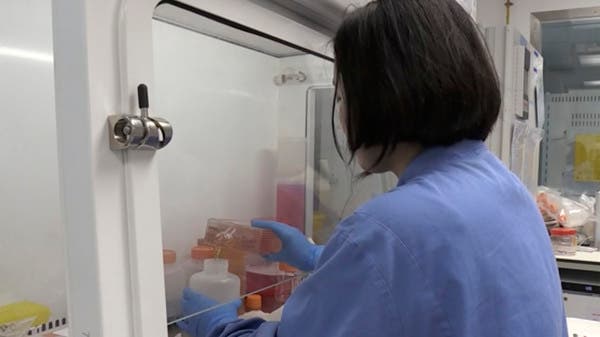

A closely watched coronavirus vaccine being developed by scientists at Oxford University appears protective in a small study of six monkeys, promising findings that led to the start of human trials late last month, US and British researchers reported on Thursday.
The preliminary findings, which have not undergone rigorous review by other scientists, appeared on the preprint server bioRxiv on Thursday.
British drug maker AstraZeneca last month announced it had teamed up with researchers at the Oxford Vaccine Group and the Jenner Institute, which are developing the vaccine.
According to the report, some of the monkeys given a single shot of the vaccine developed antibodies against the virus within 14 days, and all developed protective antibodies within 28 days, before being exposed to high doses of the virus.
After exposure, the vaccine appeared to prevent damage to the lungs and kept the virus from making copies of itself there, but the virus was still actively replicating in the nose.
For more coronavirus news, visitour dedicated page.
Stephen Evans, a professor of pharmacoepidemiology at the London School of Hygiene & Tropical Medicine, said the monkey data were "very definitely” good news.
"It is one of the hurdles to be passed by the Oxford vaccine and it has cleared it well,” he said in an emailed comment.
Although success in monkeys is seen as a key step, many vaccines that protect monkeys in the lab ultimately fail to protect humans.
Evans said one key finding was particularly reassuring – that there was no evidence of immune-enhanced disease, in which instead of protecting against a virus, a vaccine actually makes the disease worse.
"This was a definite theoretical concern for a vaccine against SARS-CoV-2 and finding no evidence for it in this study is very encouraging,” he said.
Last month, British researchers started dosing human volunteers with the vaccine in a small safety trial, making it one of only a handful to have reached that milestone. As of May 13, 1,000 people have received the vaccine, the researchers said.
Other vaccines in human trials include those by Moderna Inc, Pfizer Inc and BioNTech SE and China’s CanSino Biologics Inc.
Globally, there are more than 100 experimental vaccines under development to fight the new coronavirus that has so far infected 4.39 million people and killed 296,847.
A vaccine that protects people from the coronavirus could end the pandemic, but finding one that works and manufacturing enough doses is a huge challenge.
Normally, it can take up to 10 years to develop a working vaccine, but the urgency of the pandemic has resulted in accelerated timelines, and some officials estimate a working vaccine could be available for emergency use as early as this fall.